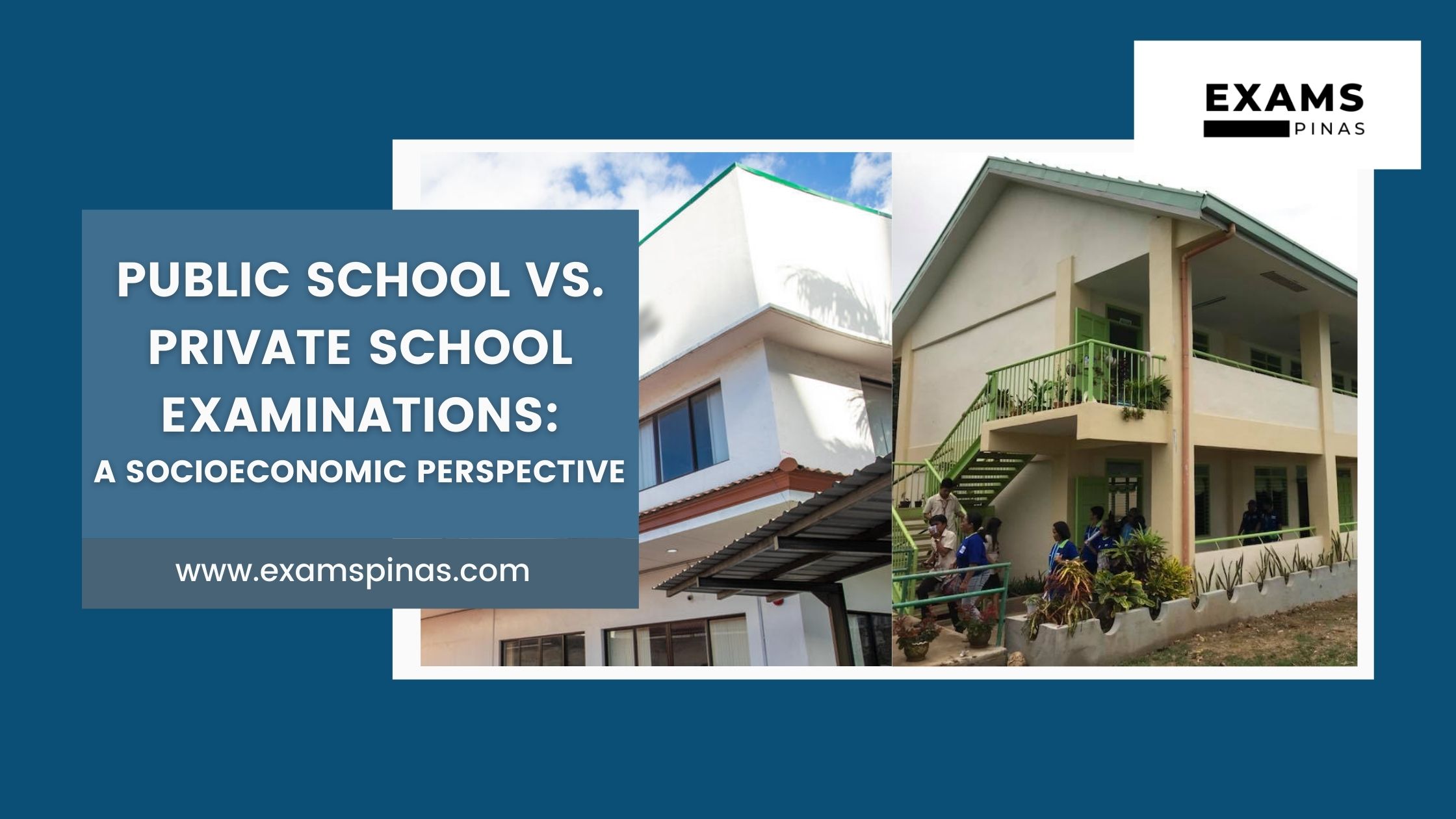Unveiling Disparities in Educational Assessment Systems
The education landscape in the Philippines is marked by diversity, with students attending either public or private schools, each governed by distinct examination systems. This article delves into the nuanced disparities between public and private school examinations, shedding light on the socioeconomic implications that contribute to educational inequalities and shape opportunities for social mobility.
Public School Examinations: Navigating Challenges in Resource Constraints
Assessing the Impact of Limited Resources
Public schools, often grappling with limited financial resources, face unique challenges in crafting examination systems that align with optimal educational standards. With larger class sizes and fewer resources for extracurricular activities and special programs, public school examinations may focus more on foundational academic knowledge.
Standardization and Mass Assessment
Public school examinations frequently lean towards standardized testing methods due to the need for mass assessment. While this approach allows for efficient evaluation, it may inadvertently overlook individual learning styles and potential areas of strength among students.
Addressing Educational Inequalities
The disparities in public school examination systems contribute to educational inequalities, placing students from economically disadvantaged backgrounds at a potential disadvantage. Limited resources may hinder the implementation of innovative assessment methods that cater to diverse learning needs.
Private School Examinations: Tailoring Assessments in Pursuit of Excellence
Flexibility and Specialized Assessments
Private schools, often endowed with greater financial resources, can afford more flexible and specialized examination systems. This allows for a broader range of assessment methods, including project-based evaluations, portfolios, and individualized assessments tailored to students’ strengths and interests.
Emphasis on Holistic Development
Private school examinations often extend beyond academic achievements, emphasizing holistic development. Assessment criteria may include extracurricular activities, leadership skills, and community involvement, providing a more comprehensive evaluation of a student’s potential.
Contributing to Social Mobility
While private school education comes with its own set of challenges, the varied examination approaches contribute to opportunities for social mobility. Students from diverse socioeconomic backgrounds may find a platform for showcasing their talents and abilities, potentially leveling the playing field.
Navigating the Intersection: Addressing Educational Inequalities
Policy Reforms for Inclusivity
The disparities in examination systems between public and private schools underscore the need for policy reforms aimed at promoting inclusivity. Initiatives focusing on equal access to quality education, resource allocation, and teacher training can mitigate the impact of socioeconomic disparities on examination outcomes.
Encouraging Collaboration for Educational Equity
Public-private partnerships can play a pivotal role in addressing educational inequalities. Collaborative efforts between public and private institutions can facilitate knowledge exchange, resource sharing, and the implementation of effective examination practices that benefit students across the socioeconomic spectrum.
Forging a Path Towards Equitable Education
In the dynamic realm of Philippine education, understanding the disparities in examination systems between public and private schools is pivotal for fostering educational equity. As we navigate the complexities of these systems, it becomes imperative to advocate for policy reforms, collaborative initiatives, and a collective commitment to creating an inclusive educational landscape that empowers students from all walks of life. By addressing these disparities, we pave the way for a future where every student has an equal opportunity to succeed, regardless of their socioeconomic background.

